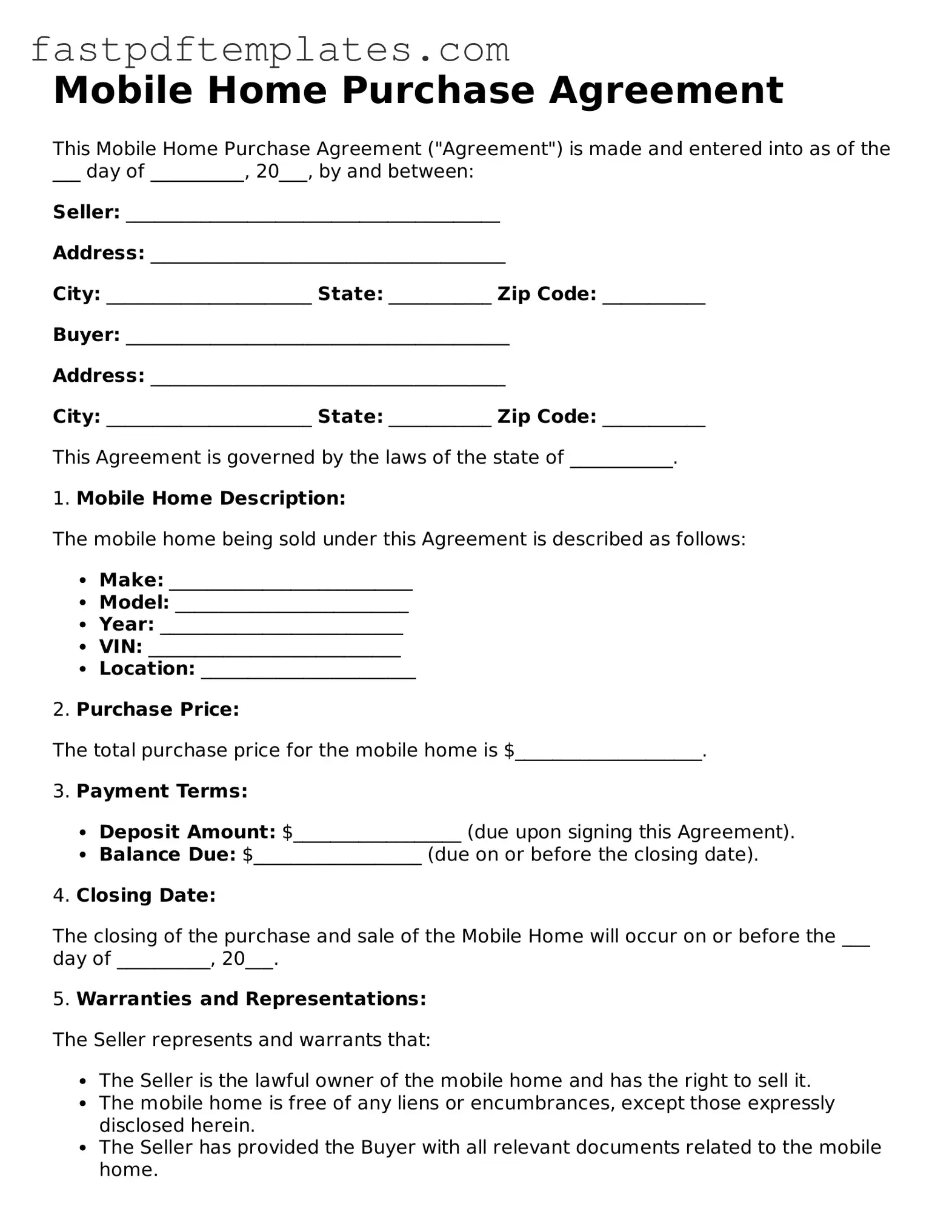Mobile Home Purchase Agreement
This Mobile Home Purchase Agreement ("Agreement") is made and entered into as of the ___ day of __________, 20___, by and between:
Seller: ________________________________________
Address: ______________________________________
City: ______________________ State: ___________ Zip Code: ___________
Buyer: _________________________________________
Address: ______________________________________
City: ______________________ State: ___________ Zip Code: ___________
This Agreement is governed by the laws of the state of ___________.
1. Mobile Home Description:
The mobile home being sold under this Agreement is described as follows:
- Make: __________________________
- Model: _________________________
- Year: __________________________
- VIN: ___________________________
- Location: _______________________
2. Purchase Price:
The total purchase price for the mobile home is $____________________.
3. Payment Terms:
- Deposit Amount: $__________________ (due upon signing this Agreement).
- Balance Due: $__________________ (due on or before the closing date).
4. Closing Date:
The closing of the purchase and sale of the Mobile Home will occur on or before the ___ day of __________, 20___.
5. Warranties and Representations:
The Seller represents and warrants that:
- The Seller is the lawful owner of the mobile home and has the right to sell it.
- The mobile home is free of any liens or encumbrances, except those expressly disclosed herein.
- The Seller has provided the Buyer with all relevant documents related to the mobile home.
6. Condition of Mobile Home:
The Buyer acknowledges that they have had an opportunity to inspect the mobile home prior to signing this Agreement.
7. Default:
If either party defaults in the performance of this Agreement, the non-defaulting party may pursue any remedies available under state law.
8. Governing Law:
This Agreement shall be governed by the laws of the state of ___________.
9. Entire Agreement:
This document constitutes the entire agreement between the parties and supersedes all prior agreements or negotiations.
IN WITNESS WHEREOF, the parties have executed this Mobile Home Purchase Agreement as of the day and year first above written.
Seller's Signature: ______________________ Date: _____________
Buyer's Signature: ______________________ Date: _____________

